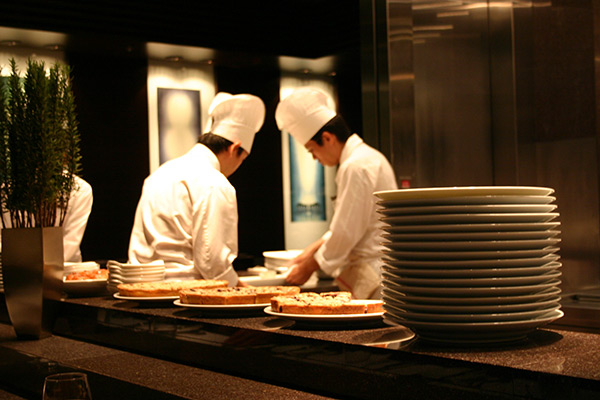4 Restaurant Accounting 101 Tips

Everyone who has ever tried your food raves about what an amazing cook you are. You pride yourself on making the most delectable meals using only the finest ingredients. With lots of encouragement, you decide to turn your talent into a business and open your first restaurant. Then the reality sets in, talent and passion alone do not run a restaurant. It is time to take a closer look at the business side of realizing your dream.
One common reason that many restaurants fail is that they do not have the accounting skills to keep the business afloat. Below are tips for any new restaurant owner to consider when it comes to restaurant accounting.
Set up your accounting calendar correctly
A lot of people will just assume that you go by a regular calendar year when setting up your accounting structure. However, restaurants function on a week to week basis. Therefore you want a fiscal calendar where your periods consist of complete fiscal weeks. Using a 4-4-5 or 13x4 fiscal calendar will allow your fiscal weeks to fall in line with your periods. This makes it easier to determine trends in week-by-week and period-by-period comparisons as well as reducing the need for journal entries to allocate labor to the correct periods
Determine GL codes wisely
There are a number of ways to structure your general ledger (GL), but since you really want consistency so that you can compare your results over the years it is important to really think through the structure you want in the beginning. Carefully think through how you want to group everything in advance. Adding too many codes can make your accounting tedious and confusing while too few codes will make it hard to drill down enough to uncover issues. For example, you may want to break your cost accounts into 6-10 accounts (meat, dairy, produce, non-alcoholic beverage, liquor, grocery, bread,) to make it easier to track your cost of goods percent. If you serve a good amount of liquor then you may consider separate categories for beer, wine and liquor to pinpoint potential issues.
Enter Accounts Payable (AP) weekly
Entering your purchases in a timely manner will help you know exactly where you stand each week, allowing you to tweak your spending accordingly. This is vital in order to maintain a healthy cash flow in such a low-margin industry where one week you may turn a profit and the next week have an overdraft.
Re-evaluate your budgets
As your sales fluctuate, make sure your spending does too. Knowing where you stand financially on a real-time basis will help you to not overspend when sales are lower, and/or allow you to purchase more when the sales warrant it.
Opening your own restaurant is a lot of hard work. There are so many factors that can make or break your business; poor accounting should not be one of them. While accounting may not be your passion, be careful not to overlook the role it plays in your future success. Setting up your accounting processes properly and then carefully managing them can help you realize your restaurateur dreams.
 Ali Hemmings: Ctuit - Ali has over 15 years of restaurant experience including IT support, bookkeeping, FOH Management, and COGS control. Her knowledgeable background has made Ali an invaluable asset at Ctuit where she and her team guide and consult restaurants during inventory and recipe system implementations.
Ali Hemmings: Ctuit - Ali has over 15 years of restaurant experience including IT support, bookkeeping, FOH Management, and COGS control. Her knowledgeable background has made Ali an invaluable asset at Ctuit where she and her team guide and consult restaurants during inventory and recipe system implementations.


